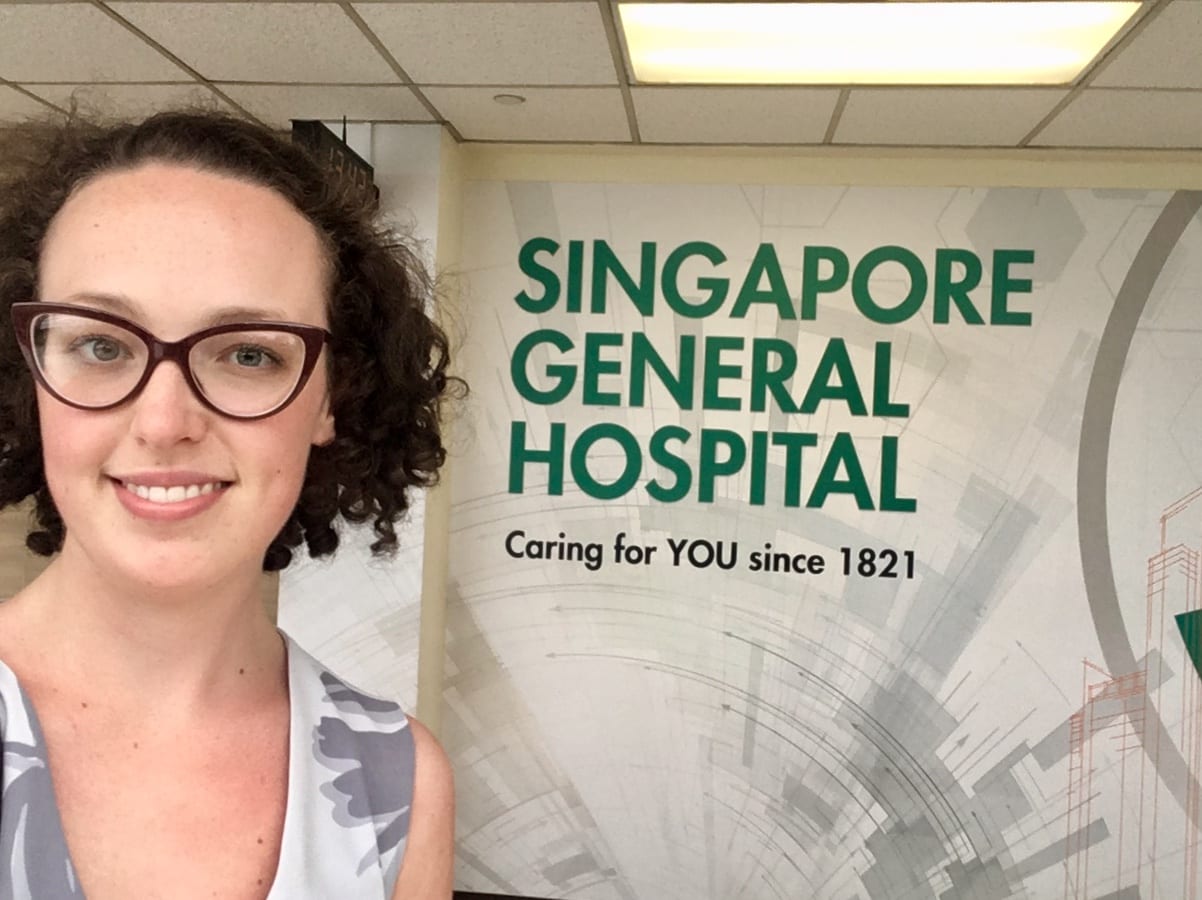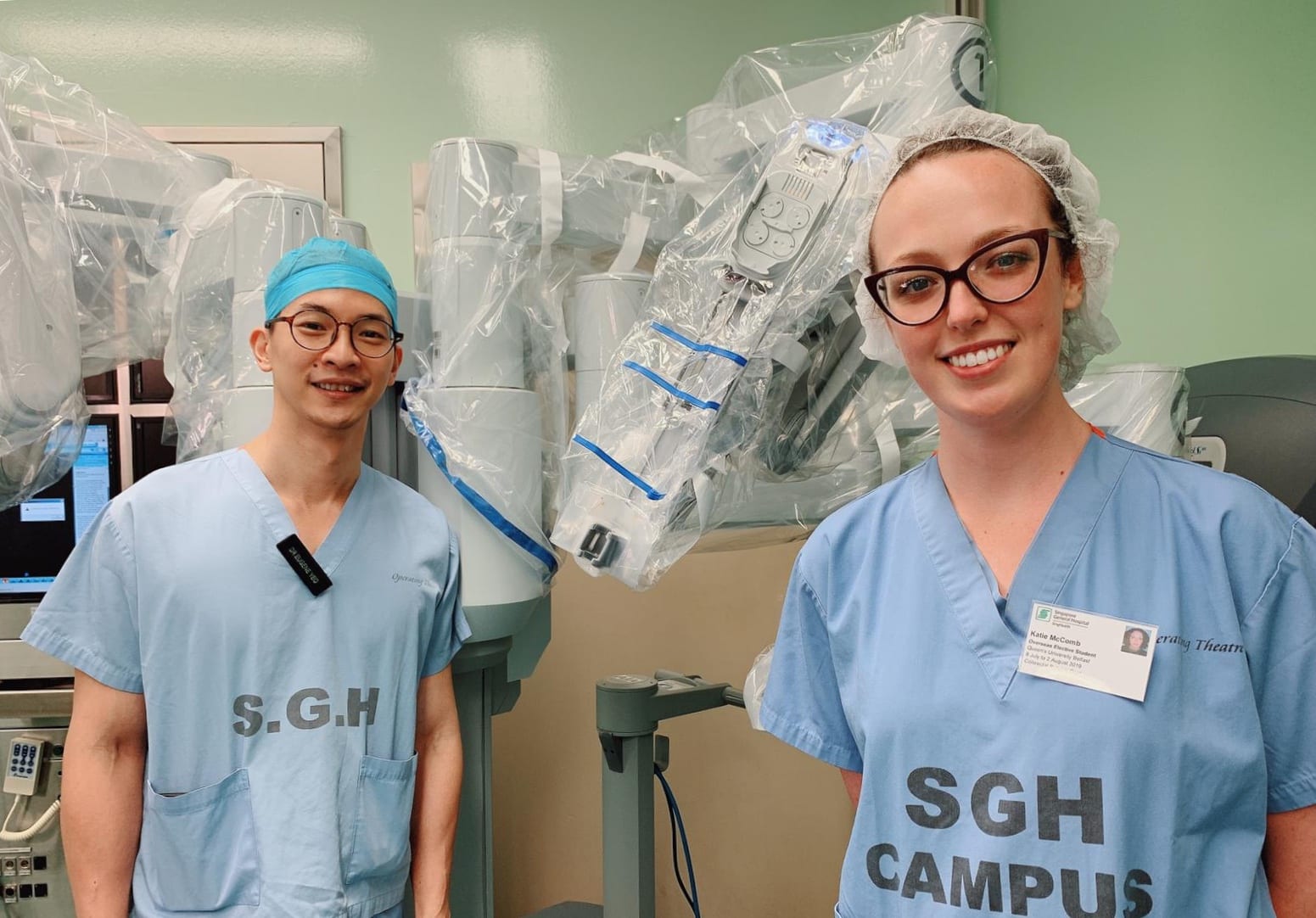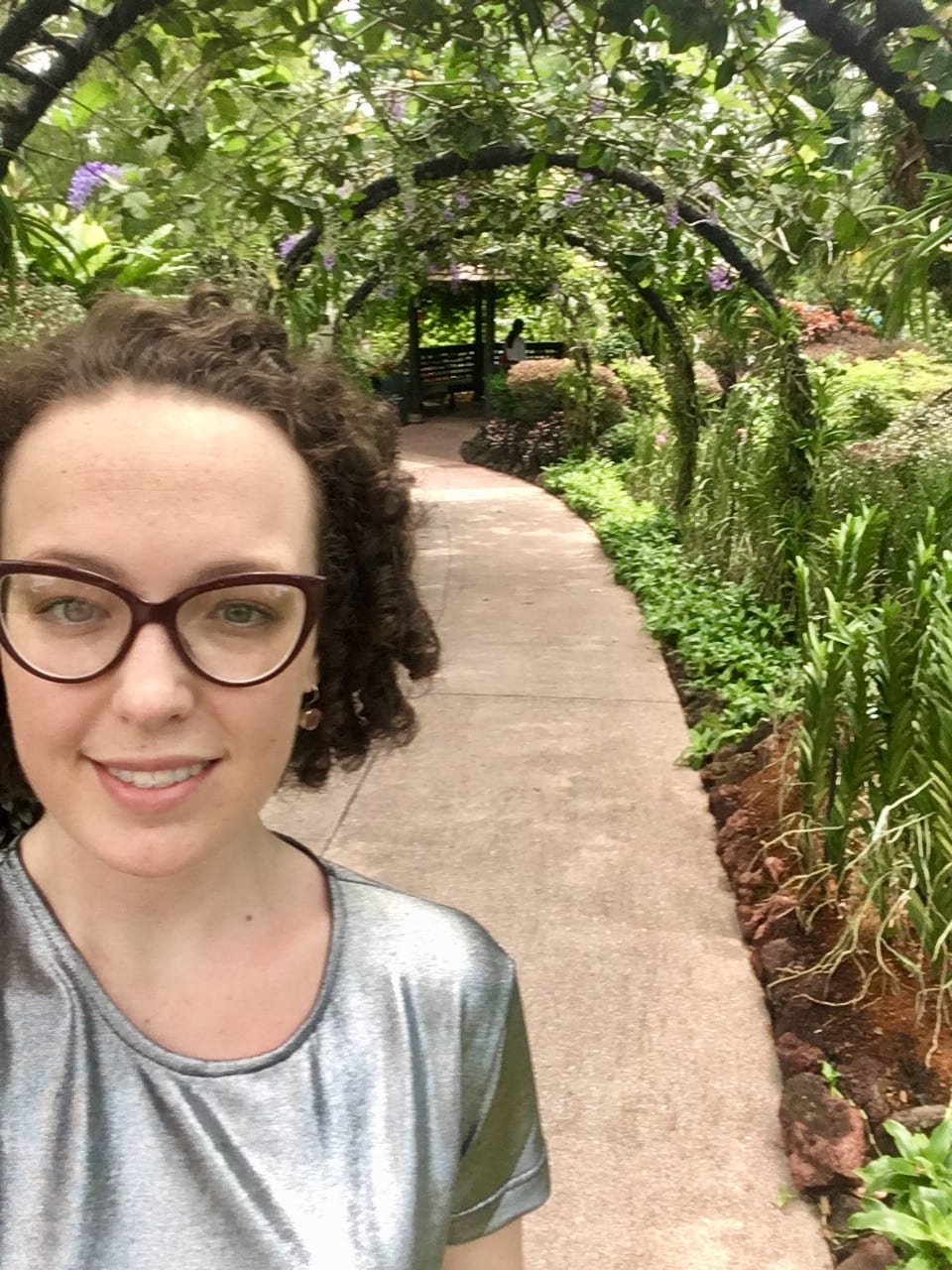Learning from best practice in Singapore
10 Feb 2020
In a featured article in our membership magazine “voice”, Dr Katie McComb explained how a College scholarship helped her take back international best practice to Northern Ireland. College Members can read the full edition of “voice” by logging into their online dashboard account.

In a featured article in our membership magazine “voice”, Dr Katie McComb explained how a College scholarship helped her take back international best practice to Northern Ireland. College Members can read the full edition of “voice” by logging into their online dashboard account.
“I have a deep interest in colorectal surgery and its role in the treatment and management of many diseases including Crohn’s Disease, Ulcerative Colitis and Colorectal Cancer. This interest was developed further during the completion of my Master’s Degree in Clinical Immunology during my intercalated year, where I gained greater understanding of how the immune response is involved in bowel disease and how it can be manipulated to improve therapeutic outcomes.
“Colorectal cancer is increasing in prevalence and incidence globally, with recent reports showing that an increasing number of young people aged twenty to forty are being diagnosed with the disease. This field of medicine is, therefore, growing in complexity and importance. Colorectal cancer is one of the few cancers that can be detected early through screening programmes and it can also be treated effectively and curatively through surgical resection.

“While this has led to an increase in the overall survival, it remains a significant cause of morbidity and mortality for patients. For these reasons, I decided to pursue an elective in colorectal surgery in order to further my knowledge and experience within this field and cement my enthusiasm and desire to become a colorectal surgeon.
Why Singapore?
“My desire to pursue my elective in Singapore was motivated by the country’s high incidence of the disease. The most recent annual report published by the Singapore Cancer Registry has identified colorectal cancer to be one of the top three most common cancers diagnosed in Singapore regardless of gender or ethnicity. Indeed, colorectal cancer forms one in seven cancer diagnoses in men in Singapore and one in six diagnoses in women.
“In the UK, colorectal cancer is the fourth most common cancer. Singapore also has a unique and diverse culture and patient population including Chinese, Indian and Malay subpopulations. This diversity offers a unique learning opportunity.
“Completing my elective at Singapore General Hospital gave me invaluable experience learning from world-leading colorectal surgeons. The specialised colorectal surgery department at the hospital is pioneering the use of minimally invasive and robotics-assisted laparoscopic surgery, which enabled me to develop my surgical skills using state of the art technology as well as improving my history-taking, examination and diagnostic skills. In addition, I hoped that this elective would also allow me to appreciate and gain further experience of a different healthcare system while developing my communication skills.
Singapore General Hospital
“Thanks to this scholarship from the College, I completed a four-week placement with the Colorectal Surgery team at Singapore General Hospital under the tutelage of Mr Eugene Yeo from 8 July 2019 to 2 August 2019. This was a fascinating, exciting and motivating experience which helped me improve my knowledge in this area by giving me the opportunity to observe and engage with the patient journey from presentation and diagnosis through to treatment and recovery.
“Throughout my placement I was involved in all aspects of patient care and I attended outpatient clinics, endoscopy lists and operating lists. Through this I gained insight into the patient journey from presentation and diagnosis through to surgical management. This allowed me to appreciate the different ways that colorectal disease can present and advanced my understanding in the use of endoscopic imaging to identify colorectal disease. This included the use of narrow-band imaging in colonoscopy which I had never seen before.
“Singapore has a hugely diverse society and a rich cultural heritage, so my involvement in all points of the patient journey also gave me a fantastic insight into the effects of culture, religion and ethnicity on the patient’s understanding of their condition, their expectations of treatments and their approach to treatment. This allowed me to further my understanding of the impact of cultural factors on healthcare, and how recognition and identification of these factors can assist in promoting a strong and trusting doctor-patient relationship.
“This experience also allowed me to appreciate both a different healthcare system and management of colorectal cancer outside of the National Health Service (Singapore operates a co-payment system whereby patients contribute to the payment of their healthcare). During my experience, I found that patients in Singapore typically had a greater appreciation and understanding of their health and were more invested in prevention of health problems compared to patients in Northern Ireland. This was demonstrated by many patients recognising their symptoms and referring themselves directly to specialist hospital care without visiting their General Practitioner. This was also reflected in Singapore’s Colorectal Cancer screening programme which offers patients imaging in the form of colonoscopy at fifty years old as well as faecal occult blood stool testing.

“Comparatively, in the NHS, only stool testing is used as screening and this is offered to patients much later at the age of sixty years old. As a result of this, polyps and colorectal cancers are often detected at earlier stages in Singapore. The healthcare system in Singapore also appeared to be more efficient. The waiting list times for investigation and surgical treatment were minimal with most patients undergoing surgery within a few weeks of presentation and diagnosis.
Innovation and technology
“Singapore also uses highly innovative techniques and advanced technology in their surgical management of colorectal disease. I had the opportunity to observe expert surgeons performing complex bowel resections using three dimensional laparoscopy in the operating theatre. I also gained further understanding into the benefits of minimally invasive laparoscopic techniques in improving patient outcomes. However, one of the most fascinating aspects of my time with the colorectal surgery team was the opportunity to observe surgeons using the da Vinci robot system to operate on patients with complex rectal cancers and perform effective and efficient resections of the cancer.
“The technological advantages of the robot allow the surgeon to have a three dimensional view inside the abdomen and increased surgical stability during the operation. There are no complications due to operator muscle fatigue or hand tremor which improves control and results in more accurate dissection of the tissue. Consequently, the surgeons were able to accurately perform ultra-low anterior resections, removing tumours that were close to the anal sphincters whilst preserving sphincter function. The robot also utilises significantly smaller incisions in the abdominal wall compared to traditional open surgery. The use of this robotic technique has been shown to reduce post-operative complications and to promote post-operative recovery, allowing patients to be discharged from hospital earlier.
“This Medical Elective Award has enabled me to discover and explore the pioneering and innovative techniques which are advancing and improving the surgical management of colorectal disease. I have embraced this opportunity to further develop my own clinical practice. This includes my history taking skills, clinical examination and also my understanding of the surgical techniques which are used in colorectal surgery. However, this experience also allowed me to see the importance of passion and creativity within surgery. I was inspired by the professors’ and consultants’ enthusiasm to give patients their time and emotional support as well as continually striving to use creative approaches to advance surgical techniques and improve patient outcomes.
“This was also reflected in the unit’s engagement in pioneering research in which they work alongside other specialties from the National Cancer Centre to advance understanding of the pathophysiology of colorectal disease to develop new treatments. I strongly believe that the teaching I received from the professors and consultants during my placement has expanded my knowledge and it has also cemented my desire to pursue a career in surgery.
“This placement has also motivated me to continue to develop my skills whilst always keeping the patient at the centre of their care. It has encouraged me to become involved in research in my future career and to continue to push the boundaries to improve outcomes for patients.
Lessons learned
“My elective has highlighted to me the need for the National Health Service to embrace technology in surgery. This would maximise the efficient use of operating theatres, reduce waiting lists and promote faster patient recovery with fewer number of post-operative complications. It has also reinforced my belief that the National Health Service must reduce the age at which patients are screened for colorectal cancers if these benefits are to be realised.
“I would like to thank the Royal College of Physicians and Surgeons of Glasgow for its support in enabling me to have this fantastic opportunity.”
Find out more about of range of scholarships
Category: Engagement
Latest news and statements
Key priority areas
Topics
- Workforce
- Wellbeing
- Equality, Diversity and Inclusion
- Climate Change
- Health Inequalities
- College
- Obesity
- COVID-19
Archive
Key links
Tweets by @rcpsglasgow